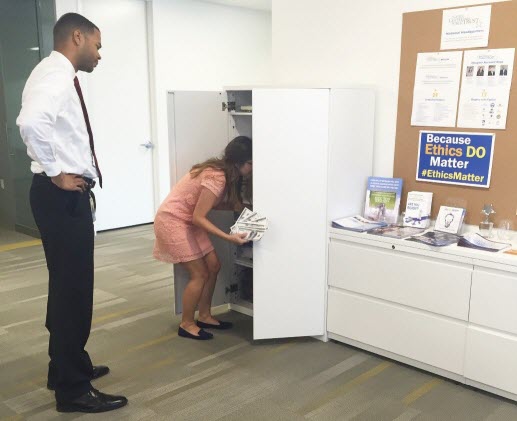Feel Free to Steal This Advice!

A close friend recently told me the story of a promising entry level employee who took money from his employer’s petty cash to pay for some personal expenses. He was caught when the president of the organization saw him going into the petty cash safe to return the money he borrowed.
Yikes!
All company cultures are different, and all company policies are different. However, to state the already painfully obvious: one should never act on something without having a clear understanding of the company policy.
If you ever face, or know someone who is facing, a similar dilemma, these two tips can lead you in the right direction in terms of decision-making:
1. Build Bridges, Don’t Burn Them
Whether you are celebrating one or eighteen years at a company, building on relationships will get you further than alienating yourself. Be mindful of what is expected of you and seek out opportunities to position yourself as a reliable and trustworthy asset.
If you are having financial problems, you should address them with your immediate superior. As difficult as this conversation may be for you, your management team may be able to help you brainstorm a variety of solutions for you to overcome the obstacles you are facing.
Asking your new manager for help paying for your sick Golden Retriever’s medical bills may be awkward, but imagine how exponentially more awkward it would be to have them find out you are stealing.
2. Better Safe Than Sorry
The worst thing that can come from asking for something is having them respond with a No. Be confident in your question and in yourself. If you truly and wholeheartedly cannot muster up the courage to address an issue with your team, then perhaps you need to rethink the scenario before moving forward with it.
As we always try to emphasize, it is not realistic to assume one can instantaneously develop effective ethical decision-making skills overnight. There is a popular fitness saying that reads “You don’t get fat from one burger and you don’t get fit from one salad.” Developing a reputable work ethic is much like maintaining a healthy physical life: it requires discipline and constant effort.
The entry level person in our story will hopefully most likely be scarred enough by this experience to avoid making similar mistakes in the future. However, this very expensive lesson may cause him to lose credibility as an employee. How are you preparing yourself to be the best possible asset to your company?
For more information on ethics training or questions about your career in general, email us at [email protected].
Remember, Ethics DO Matter.
— Alexia Kammer
Business Development Specialist, NASBA Center for the Public Trust




